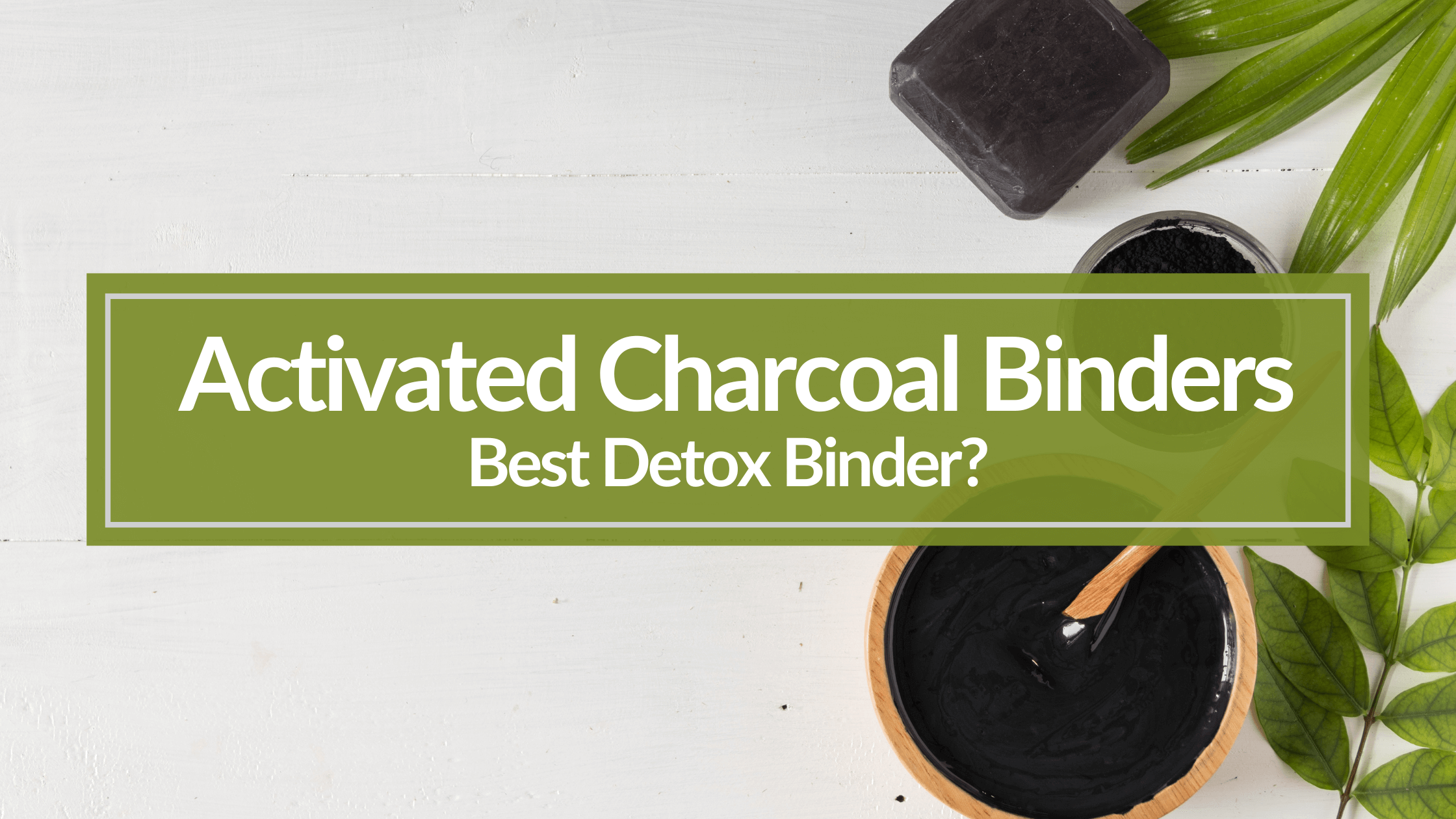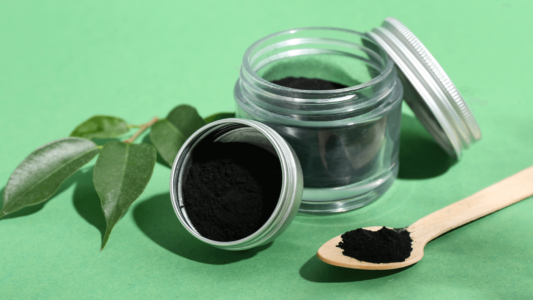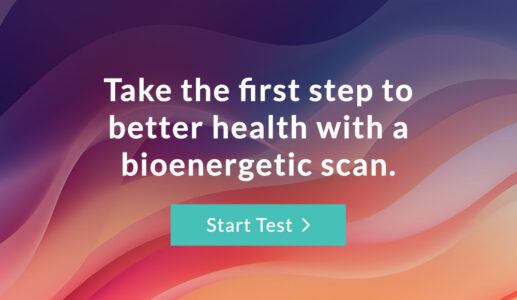
Are Activated Charcoal Binders the Best Detox Binder?
And should you be taking them?
As our world becomes more polluted and people become more educated about biotoxins and biotoxin illness, many of you are also learning about toxin binders like activated charcoal. Activated charcoal binders have gained a lot of attention in recent years. But are they the best option for detoxification?
Not always! In this blog post, we’ll explore:
- What activated charcoal binders are.
- How they work.
- Alternative detoxification options.
Binders work by attracting certain toxins and escorting them out of the body through the natural drainage pathways. This process helps to reduce the overall toxic burden and help with any detox symptoms. By incorporating the right toxin binders, you can enhance the effectiveness of your cleansing efforts and experience the benefits you are hoping for, including improved energy, better cognitive function, and reduced inflammation.
Keep in mind that using binders is not always the first step in detoxification. Are you new to the process of detoxification? If so, please read the ways that your body needs to detox.
Detoxification is the process of removing toxins and harmful substances from our bodies. It involves certain pathways, and certain organ systems in creating balanced health. 7 organ systems that may show impaired detoxification include:
- The Liver/Gallbladder.
- The Digestive System.
- Cellular Metabolism.
- The Respiratory System.
- The Urogenital System.
- The Integumentary System.
- The Lymph System.
When it comes to bioenergetic testing, there can be other clues that link to impaired detoxification, like nutritional imbalances or obvious energetic toxins.
Toxins can come from the food we eat, the air we breathe, the products we use, and our own metabolic processes. Over time, without proper elimination, outside and inside toxins can build up in our systems and cause shifts in how you feel and in your wellness.
Detoxification helps to eliminate these toxins and restore balance to our bodies. There are many different ways to detoxify, including diet changes, herbal supplements, improving drainage pathways and incorporating lifestyle changes. Binders are only part of a detoxification program.
Activated charcoal is a common binder and is so popular it has been added to toothbrushes, toothpaste and tooth whitening.
What are Activated Charcoal Binders?
Charcoal binders are supplements made from activated charcoal. Activated charcoal is a form of carbon that has been treated with oxygen to make it more porous. This increases its ability to absorb toxins and other harmful substances.
If you use a water filter in a pitcher, then you are probably using a charcoal filter!
This type of binder is designed to bind to toxins in the Digestive System and prevent them from being absorbed into the body. They can be taken as capsules or added to food and drinks. Binders made of charcoal are considered all purpose binders, or broad spectrum.
 How do Charcoal Binders Work?
How do Charcoal Binders Work?
Charcoal binders are considered ADSORPTIVE. This means that there is a sticky process going on. A toxin adheres, or adsorbs to a surface body, rather that being mopped up or ABSORBED. It’s like hitching a ride on the back of a car with your skateboard.
A toxin attaches to a binder and gets pulled along, and out, for a ride. In essence, you are transferring molecules. When you take a charcoal binder, it travels through your Digestive System and binds to toxins and harmful substances. You have outside toxins, and inside toxins, known as endotoxins. Your bodies own metabolic processes make toxins, and these are naturally excreted through your bowel and your stool, if this system is working optimally.
Even if these systems are optimally functioning, with proper and frequent bowel movements, charcoal binders also bind to vitamins and minerals. These types of binders are great for short term, not long term use.
Charcoal binders do work particularly well for reducing bloating, gas, and other digestive issues. They do not get pulled in through the intestinal wall, or absorbed into the body. However, they’re not effective for detoxifying other parts of the body.
This is why CBH Energetics focuses on whole body drainage as a support.
Drainage can occur in many areas of the body, and the liver is a fundamental area to drain, to prevent recirculation of toxins.
The Effectiveness of Charcoal Binders
There is some evidence that a charcoal binder may remove mycotoxins from the body. A binder may wall off a mycotoxin, and keep it from entering the body through the intestinal wall. Binders are used in the food supply chain to decrease mycotoxins in animal feed.
As noted, charcoal binders are not effective at removing all toxins from the body. They only work on toxins in the Digestive System and do not address toxins in other parts of the body in an attempt at creating balanced health.
Charcoal is used in short term situations such as poisoning, and decontaminating the digestive tract, in a hospital setting. A toxin is best attached to a binder when it is reduced to a liquid form, and is in direct contact with the binder.
Activated charcoal only absorbs toxins that are in the dissolved liquid phase via direct contact. Once a substance or toxin moves into the body, charcoal is not effective at mopping up the toxin.
What does this mean?
It means that a particular ratio of charcoal to toxin must occur for the charcoal binder to be affective. If there is enough binder, then the binding or absorption process can occur.
Activated charcoal will not bind to alcohols, iron and lithium. This is because of polarity, which is attraction, and repelling, and has to do with charges between atoms in a substance. This can get quite complicated, and has to do with molecular energy!
Other substances that don’t bind are electrolytes such as magnesium, potassium, or sodium.
Alternative Binders to Charcoal Binders
While charcoal binders are a popular option for detoxification, they’re not the only option available. There are several other options you can consider, including herbal supplements, dietary changes, and lifestyle changes.
Some examples include:
- Clays such as bentonite and zeolite
- Chlorella
- Fruit pectin and fiber in general
- Silica
Lifestyle Changes and Binding in Detoxification
If you are new to detoxification and wondering about binding, your first step is to look at your diet and fiber intake. While there are some dietary lifestyles that debate the human need for fiber, as in the carnivore lifestyle, other diet changes can help your overall detoxification process. This can include reducing processed foods, sugar, and alcohol from your diet.
In keeping with fiber guidelines, incorporating more fruits, vegetables, and whole foods can help to support the body’s natural detoxification processes. Other practices that can support include:
- Regular exercise, as this moves your lymph fluid through the body, and helps with your gut microbiome and motility!
- Reducing stress, as stress decreases digestion, changing the gut microbiome and absorption of nutrients.
- Getting enough sleep. When you sleep, you are supporting your brain’s detoxification system, the Glymphatic System!
These changes can help to improve circulation, support liver function, and reduce inflammation in the body.
Pros and Cons of Charcoal Binders and Alternative Detox Options
As with any detoxification method, there are pros and cons to consider. Charcoal binders are effective for detoxifying the digestive system, but they’re not effective for detoxifying other parts of the body. We also know that they can interfere with the absorption of certain medications and nutrients.
If there is nausea or vomiting, charcoal may not be the best binder.
Herbal supplements, dietary changes, and lifestyle changes are all effective options for detoxification and creating balanced health. They can help to support the body’s natural detoxification processes and improve overall health. However, they may not be as effective for acute detoxification as charcoal binders.
Choosing the Best Detox Option for You
Detoxification is an important process for maintaining overall health and wellbeing. However, it’s important to understand what you are detoxing from! Some people know that they have been exposed to mold, as they have had experience with mold illness.
Others may suspect that they have something going on, but just can’t pinpoint what that may be.
Detoxification can be complicated and you may feel some reactions, called Herxheimer reactions, in the body. While we do have some specific remedies for this, like Herx by DesBio, or our Comprehensive Detox Kit, paying attention to how you care for yourself, day in and day out, is also a best practice for day to day detox!
When choosing a detoxification method, it’s important to consider your individual needs and goals along. The best testing to help you determine your resonating detox needs are the Full Scan, the Remedy Scan and/or the Balancing Scan.

